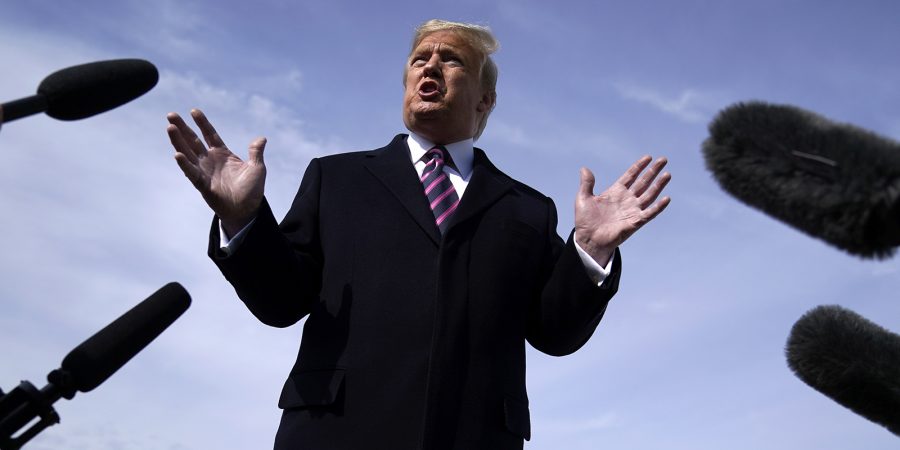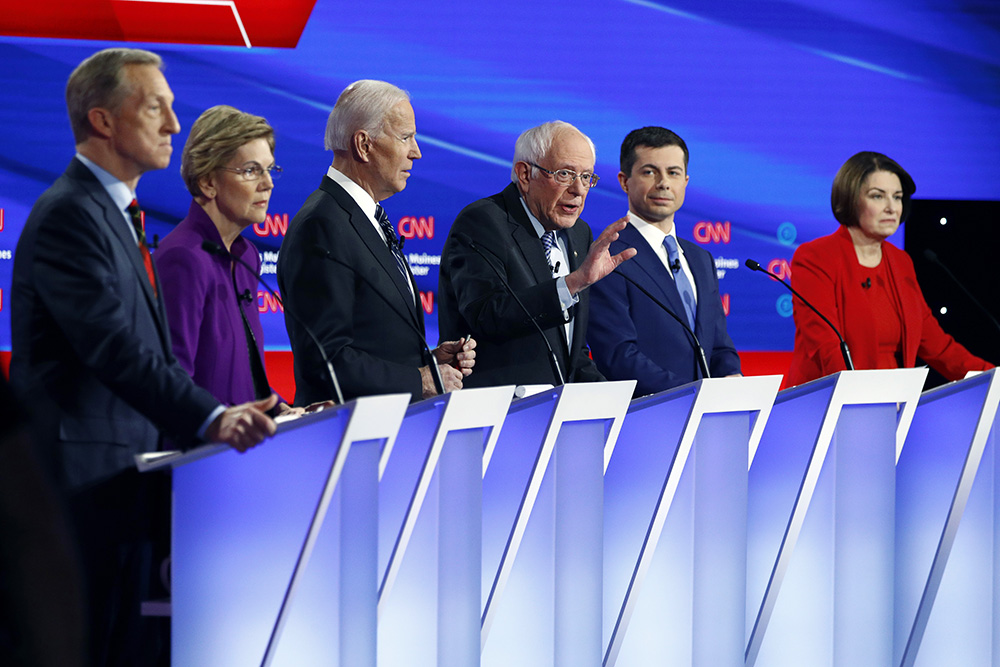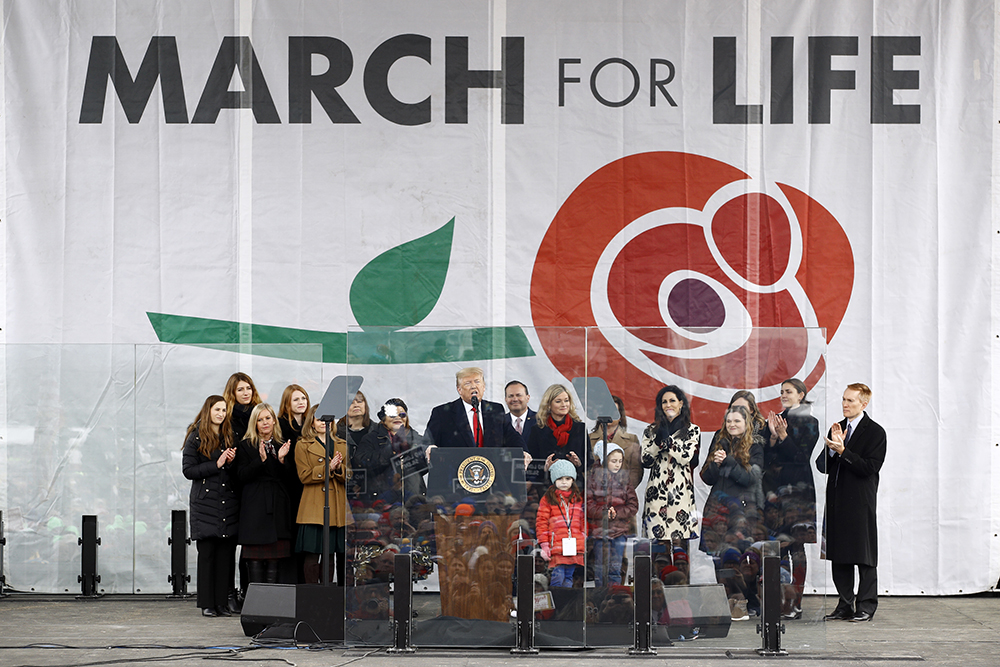I have spent a lot of time over the last three years thinking about the evangelical embrace of Trump.
Opinion: The problem with the ‘reluctant Trump’ vote

If anti-Trumpers would empathize more deeply with the motivations of evangelical Trump voters, Walker suggests, they would be less critical of the conservative Protestants who voted for this corrupt president.
I have spent a lot of time over the last three years thinking about the evangelical embrace of Trump. One of the regrets I had about the first edition of my 2018 book, “Believe Me: The Evangelical Road to Donald Trump,” was my failure to capture the diversity that exists among the 81% of white evangelicals who pulled a lever for the president in 2016.
In the postscript for the recently released paperback edition, I sought to correct this lack of nuance. As Walker reminds us, not all evangelical Trump voters attend the president’s rallies or wear “Make America Great Again” caps. The narrative of evangelicals’ support for the president is more complicated than the one peddled by journalists and pundits, who, as Walker pointed out, have little understanding of evangelical political culture.
Walker calls our attention to the “reluctant Trump voter” — the conservative evangelical who is appalled by Trump’s immorality, yet would rather vote for a pro-life candidate and defender of religious liberty over a pro-choice Democrat who is not sensitive to the religious freedom issues that concern evangelicals most. “Even the most convinced progressive,” Walker wrote, “should sympathize with religious conservatives who are concerned about federal law possibly turning against them.”

But the difference between the MAGA-hat-wearing evangelical Trump voter and the reluctant Trump voter is more about style and public behavior than political philosophy.
Both the reluctant evangelical Trump voter and the enthusiastic evangelical Trump voter are guided by a political playbook forged in the late 1970s and 1980s by the Christian right.
This 40-year-old playbook teaches evangelicals to vote for a president who will appoint conservative Supreme Court justices. All other moral issues pale in comparison. Whether you like Trump or not, this playbook led 81% of white evangelicals straight into his arms.
Many who followed this playbook in 2016 can sleep comfortably at night knowing that their vote has brought conservative Justices Neil Gorsuch and Brett Kavanaugh to the high court. These voters’ worries about threats to religious liberty have also been allayed by Trump’s executive orders (complete with White House ceremonies) protecting the political interests of evangelicals.
In the process, these voters have also enabled a president who has coarsened our moral culture, lied to the American people thousands of times, demonized his political opponents, used evangelical Christianity as a political weapon, damaged the witness of the gospel in the world, separated children from their parents at the border and promoted racist and nativist ideas.
Are reluctant evangelical Trump voters losing sleep over these things?
Walker wants us to understand how evangelical Trump voters “approach politics with far more complexity and internal tension than journalists claim.” He invokes St. Augustine: “Some religious conservatives may see the world in moral terms — right and wrong; black and white. But there’s a long moral tradition, as far back as Augustine, that sees our world in shades of gray.”
There is some truth to Walker’s appeal. Indeed, as I learned while on the road with “Believe Me,” not all evangelical Trump voters are the same. But Walker should be careful about giving reluctant Trump voters too much credit for their “complex” approach to politics.

When taken in a larger context, the political playbook of the reluctant evangelical Trump voter is woefully lacking in nuance, complexity and “shades of gray.”
Thoughtful evangelicals such as Michael Gerson, James Davison Hunter, James K.A. Smith, Ronald Sider and John Inazu have offered Christian approaches to politics that are not driven by the pursuit of power for the purpose of advancing one or two moral issues. They teach us that evangelicals can respond to moral problems in diverse ways that may not always lead to an obvious choice of one candidate or party over another.
Evangelical voters might rightly prioritize a candidate who fights poverty, protects the family or addresses climate change. Some may vote with a different set of priorities in a presidential election than they would in a local or state race. And yes, all of this means that evangelicals may need to vote for a Democrat.
These alternative evangelical approaches to public life are rooted in sound biblical and theological thinking and are thus worthy of consideration. These writers are pro-life and defenders of religious freedom. Yet their work gets little traction because the Christian right, with the help of Fox News and conservative social media, has been so successful in shaping the evangelical political mind.
When it comes to their approach to politics, there is little substantive difference between the reluctant Trump voter and diehard Trump supporters Robert Jeffress, Franklin Graham, Eric Metaxas, Tony Perkins, Paula White or Jerry Falwell Jr.
My prayer is that more Trump voters would follow Augustine’s call to see the world in “shades of gray” and stop clinging to a reductionist, “black and white” political vision that has led, and will lead them again, to cast a vote for a narcissistic tyrant who lacks even the most basic commitment to ethical leadership.
(John Fea is a professor of American history at Messiah College in Mechanicsburg, Pennsylvania. He is the author of “Believe Me: The Evangelical Road to Donald Trump,” recently released in paperback with a new postscript by Eerdmans Publishing. The views expressed in this commentary do not necessarily reflect those of Religion News Service.)
Read news at XPian News… https://xpian.news




Comments are Closed